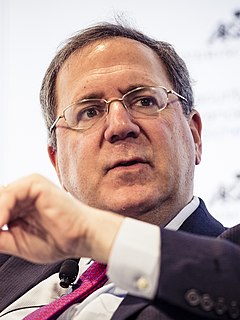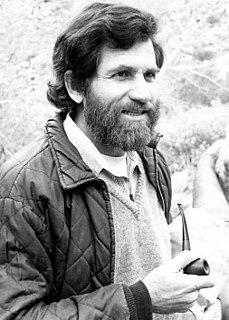A Quote by Charles C. Mann
Major power and telephone grids have long been controlled by computer networks, but now similar systems are embedded in such mundane objects as electric meters, alarm clocks, home refrigerators and thermostats, video cameras, bathroom scales, and Christmas-tree lights - all of which are, or soon will be, accessible remotely.
Related Quotes
Items of interest will be located, identified, monitored, and remotely controlled through technologies such as radio-frequency identification, sensor networks, tiny embedded servers, and energy harvesters - all connected to the next-generation internet using abundant, low-cost, and high-power computing.
Today, your cell phone has more computer power than all of NASA back in 1969, when it placed two astronauts on the moon. Video games, which consume enormous amounts of computer power to simulate 3-D situations, use more computer power than mainframe computers of the previous decade. The Sony PlayStation of today, which costs $300, has the power of a military supercomputer of 1997, which cost millions of dollars.
Our nation's vital infrastructure - such as power grids and transportation hubs - becomes more vulnerable when individual devices get hacked. Criminals and terrorists who want to infiltrate systems and disrupt sensitive networks may start their attacks through access to just one person's smartphone.
We have entered a time when a writer's first idea is his best idea, when the first thing a reporter hears is the first thing that she reports. We live in a time now when we have seen major television networks take video off of YouTube and broadcast it to millions of Americans without verifying whether the video had been fabricated or not.
Every day I get to 'Think' and work on everything from digitizing electric grids so they can accommodate renewable energy and enable mass adoption of electric cars, helping major cities reduce congestion and pollution, to developing new micro-finance programs that help tiny businesses get started in markets such as Brazil, India, Africa.

































